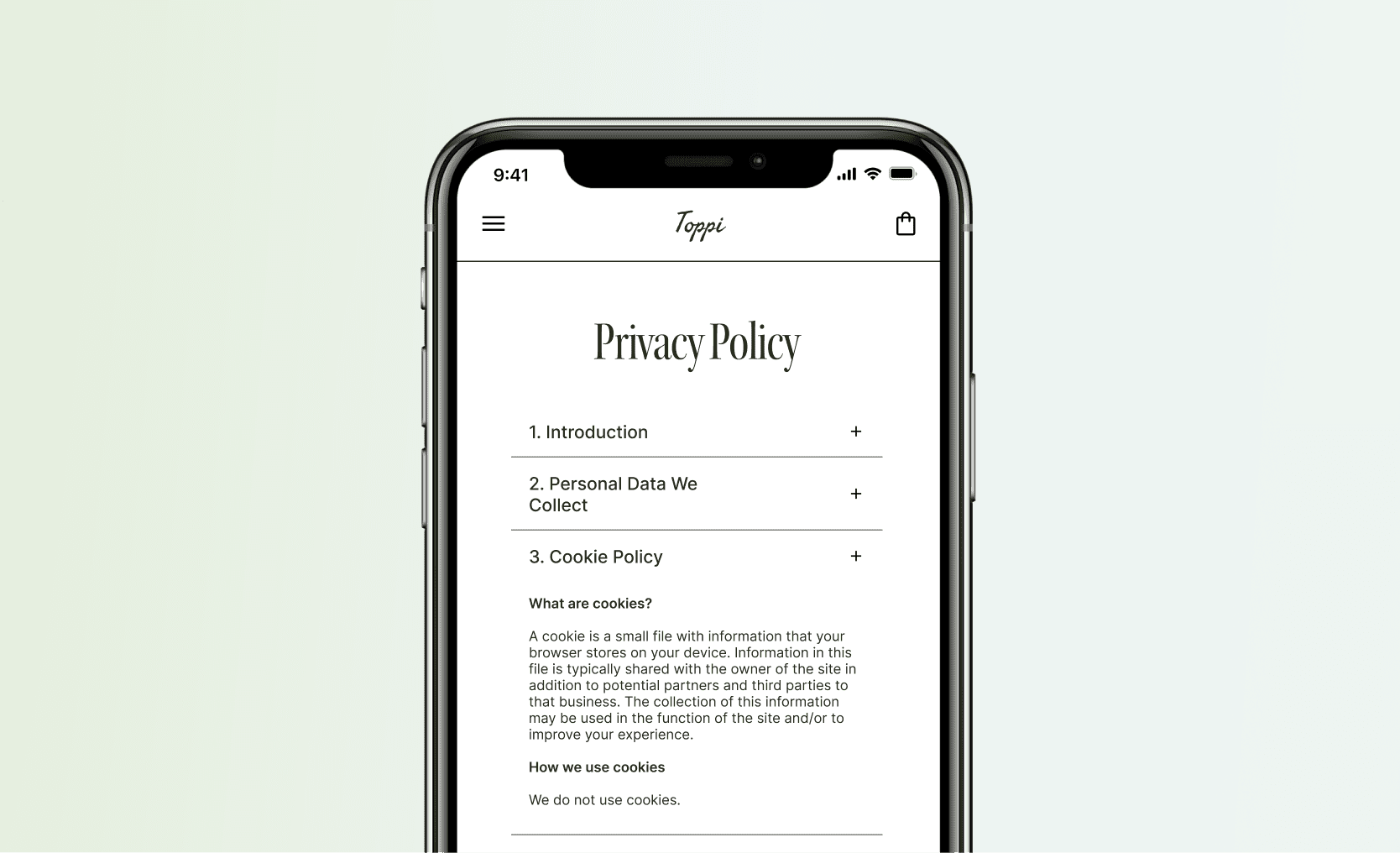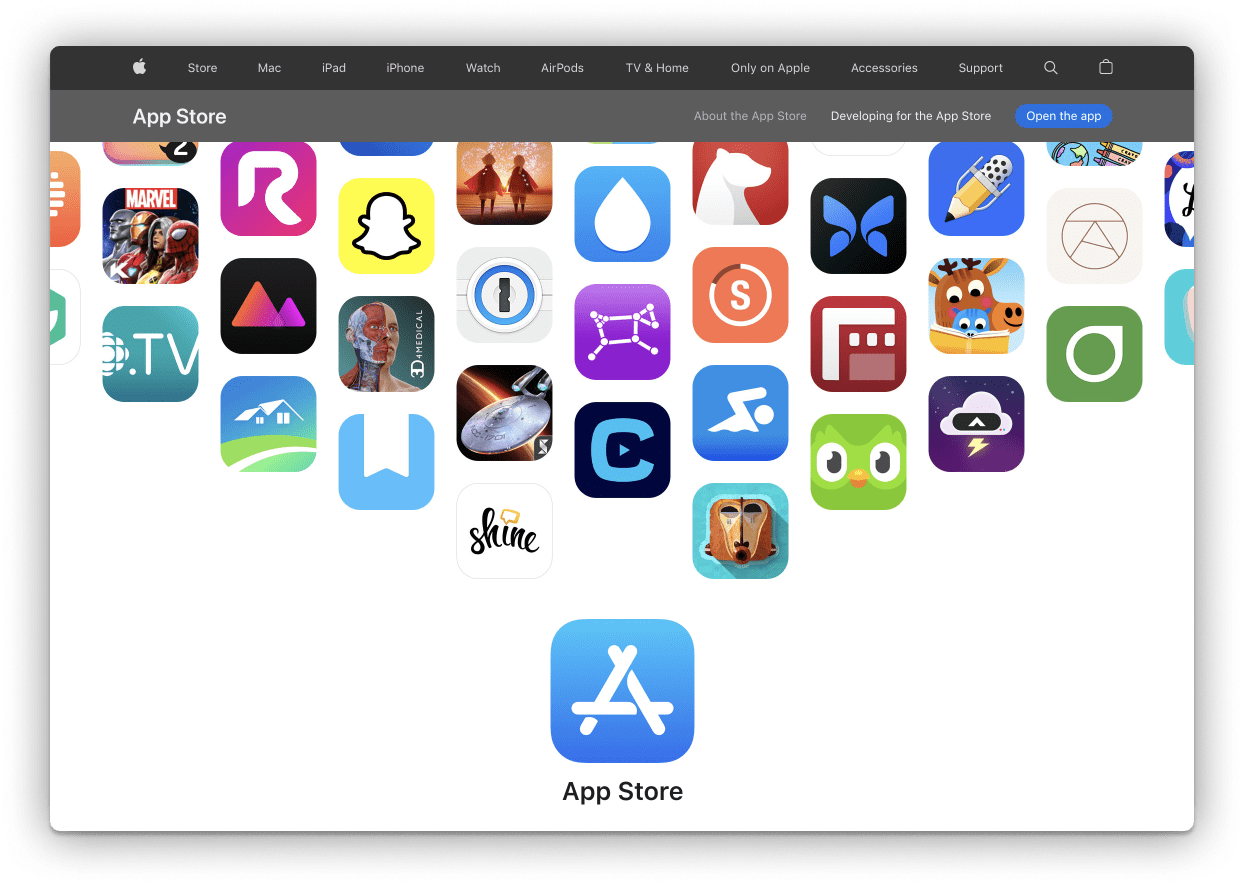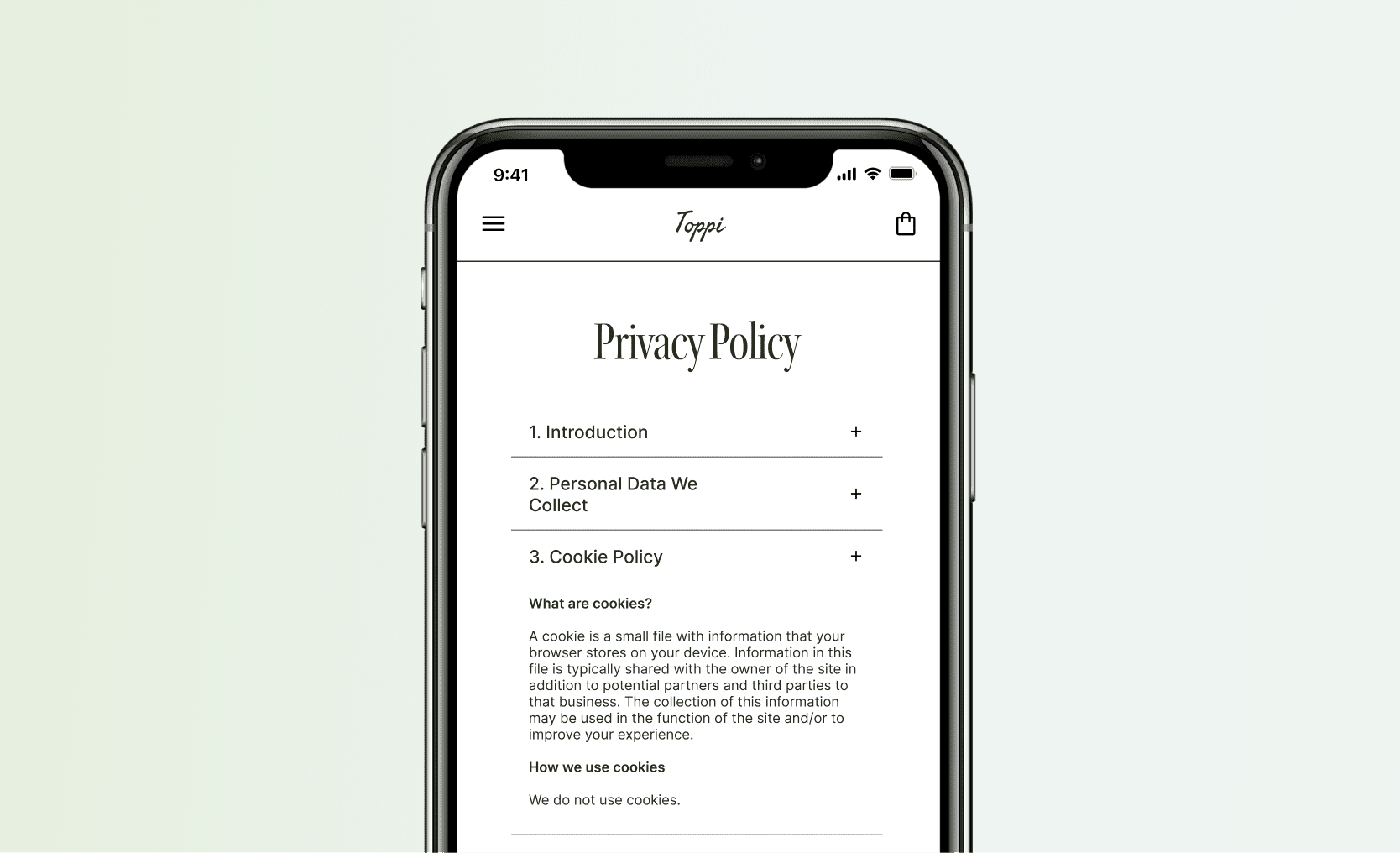Do I Need a Privacy Policy for my Mobile App?

Table of Contents
The buzz about website owners needing to attach privacy policies to websites is everywhere lately.
But what about mobile and web apps? Mobile app compliance is something you should be thinking about if you're launching an iOS or Android app.
Does your app need a privacy policy to help protect your consumers' privacy and your company's interests?
What is a mobile app privacy policy?
Let's dive into this concern and answer your questions below, where you can also find out how to make a privacy policy for apps.
Or skip ahead and start building a privacy policy for your app in minutes, using Enzuzo's easy generator 👇
Data privacy has become increasingly important over the past decade, and analysts indicate it will continue to be a point of concern for mobile app developers far into the future, especially as more countries add their privacy policies into the mix.
An app privacy policy is a legal document disclosing how your company handles customer information.
Specifically, an app privacy policy should explain the following:
- What information your app collects from its users
- How, where, and how long that information is stored
- How that information is protected
- Who you share that information with
- What the information is used for
- How a customer can request to review that information and potentially make changes, and how to opt out of certain services or aspects
Apple App Store Requirements
If you plan to host your app on the Apple App Store, you must also comply with Apple's requirements.
In short, Apple states under its App Store Review Guidelines that each app must contain a hyperlink to its privacy policy in the App Store Connect metadata field and within the app in a readily available manner.
Apple apps must clearly and explicitly state the following:
- What data the app collects, how that data is collected, and all ways that data is used
- That any third party the data is shared with will provide the same level of data protection as declared in the app's privacy policy and required by Apple
- The app's data deletion and retention policies, primarily how a user can withdraw consent and demand the deletion of their data
Additionally, Apple has multiple other requirements related to legality and data privacy.

As a reference, the App Store Review Guidelines document runs over 14,000 words in length, detailing the various "musts" and "must nots" of Apple apps.
Some of its other privacy requirements include conditions surrounding:
- Data minimization
- Account sign-in
- Data usage and data sharing
- Health, fitness, and medical data
- Children's data
- Location services
These are just a sampling of some of the many requirements that may need to be integrated into your Apple app privacy policy to maintain compliance with Apple.
Who can draft a privacy policy?
While anyone is allowed to draft an app privacy policy, most people aren't equipped to draft it particularly well or efficiently.
Luckily, Enzuzo can help draft your app's privacy policy quickly and professionally, leaving your company and your customers protected against data privacy concerns.
With Enzuzo, you can skip the expensive lawyer and generate a privacy policy that fits all of your mobile apps requirements.
Do I need a privacy policy for my app?
All of this information culminates in the quintessential question, do I need a privacy policy for my app?
The simple answer is: yes, you need a privacy policy for your mobile app.
Let's start with the most likely indicators that your app requires a privacy policy:
- If your app is featured on either Apple App Store or Google Play Store, you will need a privacy policy just to host your app in these locations.
- If you use certain third-party service providers, they require privacy policies to be provided. These third-party service providers include Google Maps, Google Analytics, and Facebook Graph API.
- If your app has users from certain geographical regions, you must comply with their jurisdictions' privacy laws.
What privacy laws apply to Mobile Apps?
Depending upon how wide-reaching your mobile app is, you may need to ensure your app's compliance with one or several privacy laws.
Noteworthy privacy laws that may apply to your app include:
- California Online Privacy Protection Act, 2004 (CalOPPA)
- California Consumer Privacy Act, 2018 (Read more about CCPA)
- California Privacy Rights Act, 2020 (CPRA)
- Virginia's Consumer Data Protection Act, 2023 (VCDPA)
- Colorado Privacy Act, 2023 (CPA)
- Children's Online Privacy Protection Act, 1998 (COPPA)
- Canada's Personal Information Protection and Electronic Documents Act, 2000 (Read more about PIPEDA)
- The EU's General Data Protection Regulation, 2018 (Read more about GDPR)
- Video Privacy Protection Act, 1988 (VPPA)
- Health Insurance Portability and Accountability Act, 1996 (HIPAA)
Do I still need a privacy policy if my App doesn't collect any data?
If your app doesn't collect data, you may not legally need a mobile app privacy policy.
However, if you plan to market your app via the Apple App Store or the Google Play Store, these platforms will require you to include a privacy policy.
If you must create a privacy policy to market your app on these platforms, it may be wise to consider making a privacy policy that would satisfy potentially applicable data privacy laws.
This way, if you choose to collect data in the future, you will already be covered under the current laws.
How to easily generate a privacy policy for your App
Privacy policies for mobile apps are no more complicated or simplistic than those for eCommerce stores and websites.
While you could attempt to draft a privacy policy for your app on your own, an easier and legally safer option is to use Enzuzo's privacy policy generator to create a custom privacy policy for your app.
You can create your app's personalized privacy policy using Enzuzo in five easy steps:
Step One: Use our easy privacy policy generator
Step Two: Fill out our simple policy questionnaire
Step Three: Customize the look of your privacy policy
Step Four: Add your privacy policy to your app
Step Five: Update your privacy policy
Step One: Use our easy privacy policy generator
.png?width=800&name=Privacy%202%20-%20Onboarding%20(1).png)
The first step is to navigate to our easy privacy policy generator and start the process. Don't worry; it won't take you long!
Step Two: Fill out our simple policy questionnaire
Next, you will need to fill out our simple policy questionnaire.
We'll ask you a few questions about your business or app, like what kind of data you collect and what you use it for.
We'll use your answers to customize your privacy policy precisely to your needs.
Step Three: Customize the look of your privacy policy
The third step is to customize the look of your app's privacy policy.
You'll want the policy to blend in with your app's aesthetics so it appears fully incorporated rather than an afterthought slapped onto the app later in the design process.
In this step, you can play with aesthetics like border styles, title, accordion default state, button style, and even different languages!

Many app owners and developers understand the importance of integrating a well-worded privacy policy into an app as it is being developed.
But if this is your first app, or you're just learning about privacy policies, don't worry!
Enzuzo can help you integrate your privacy policy so it looks like it was part of the original development plans as our policy is perfectly formatted for mobile.
Step Four: Add a privacy policy to your mobile app
Now it's time to add your new privacy policy to your mobile app.
You can do this step yourself or have Enzuzo handle it for you. Your Enzuzo privacy policy will be accessible via a link ending in: /apps/enzuzo/privacy.
You will need to add this link to your mobile app. There are three places you should consider adding your privacy policy:
- As a link in the app store, like Apple App Store or Google Play Store
- Into the app's menu or prominently on the app's home screen
- On the app's promotional website, if you have one
Step Five: Update your privacy policy
One crucial fact about privacy policies is that they are constantly in a state of evolution.
As data privacy laws worldwide are added and amended, so must your mobile app's privacy policy stay up to date with these changes.
A once-per-year manual update isn't sufficient to keep your business and its customers adequately protected. Instead, the best protection comes with round-the-clock monitoring, updating, and implementing of changing data privacy laws.
Sound exhausting?
It certainly would be if you were handling this on your own. However, you don't need to do that, so it doesn't need to exhaust you in the least!
When you use Enzuzo to handle your mobile app's privacy policy, we'll handle all those issues. Using your answers from step two, we'll continue to update your privacy policy as data protection laws change automatically and new laws are implemented.
All of this will give you the peace of mind you need to rest easy knowing your app complies with all relevant data privacy laws and regulations — both now, and in the future.
How often should I update my app's privacy policy?
If you are drafting your app's privacy policy, you'll need to update it regularly, but how often should you do this? Is one month or one year appropriate?
This is a difficult question to answer in a standardized, one-size-fits-all manner. The real answer would be whenever the laws are changed or a new relevant law is added.
The wider your app's reach, the more laws it must satisfy. The more data privacy laws you operate under, the greater the chance one will be changed or amended. Likewise, the further your customer base is spread geographically, the greater the chance that new laws are initiated in your users' jurisdictions.
For example, if your user base currently runs the length of the entirety of North America, then you must consider data privacy laws in the following jurisdictions:
- The United States
- US federal laws, like HIPAA and COPPA
- US current comprehensive state laws, like those in California
- US state laws that are signed and coming into effect soon, like those in Colorado, Utah, Connecticut, and Virginia
- US states with active bills, like Massachusetts, Michigan, Ohio, Pennsylvania, and New Jersey
- The 23 US states with inactive bills, like Minnesota, New York, Florida, and Washington
- Canada
- Canada's current PIPEDA
- Canada's potential Consumer Privacy Protection Act (CPPA)
- Canada's data protection acts, which currently seven provinces have, including British Columbia, Alberta, Ontario, and Quebec
- Potential data protection acts from the three provinces currently lacking them
- Additional upcoming data protection laws from Canada or its 10 provinces
- Mexico
- Data protection under the Mexican Consitution
- Mexican Federal Law for the Protection of Personal Data Held by Private Parties (FLPPDHPP)
- Other current Mexican data protection laws
- Upcoming data protection laws from Mexico or its 32 states
On the other hand, if your app is exclusively used by customers living in Maine, then you may only need to worry about laws and regulations in Maine.
Regardless of the reach of your customer base, working with a company dedicated to updating your mobile app's privacy policy can be a great weight off your shoulders.
How can Enzuzo help?
Enzuzo works with over 10,000 brands to help minimize privacy risks on their apps, online stores, and websites. We have a team dedicated to staying on top of data privacy laws worldwide.
As soon as our customers' privacy policies are near obsoletion due to a legal update or new regulation, our team is on top of it, updating your policy to keep you in compliance.
We make it simple and easy to maintain compliance with all the relevant laws and regulations your app may fall under worldwide. We are more than just a policy generator.
We can handle data requests, compliance reporting, and legal policies. And we can do all of this across 25+ languages.
We have packages to fit every budget, starting with a free forever package and scaling up to packages appropriate for small, medium, and large businesses.
Final Thoughts
There's no need to keep your head in the sand regarding your app's privacy policy. Let Enzuzo handle the logistics and updates for your app's data privacy policy while you focus on the finer details of your business.
From free services to paid options, Enzuzo has a plan that will help protect your customers' privacy, protect your company's liability, and take the weight of data privacy regulatory fines and legal fees off your mind for good!

Paige Harris
Paige is the growth marketing lead at Enzuzo and host of The Living Lab podcast, providing insightful articles in the privacy space.

.png?width=800&name=Privacy%20Policy%20-%202%20(1).png)